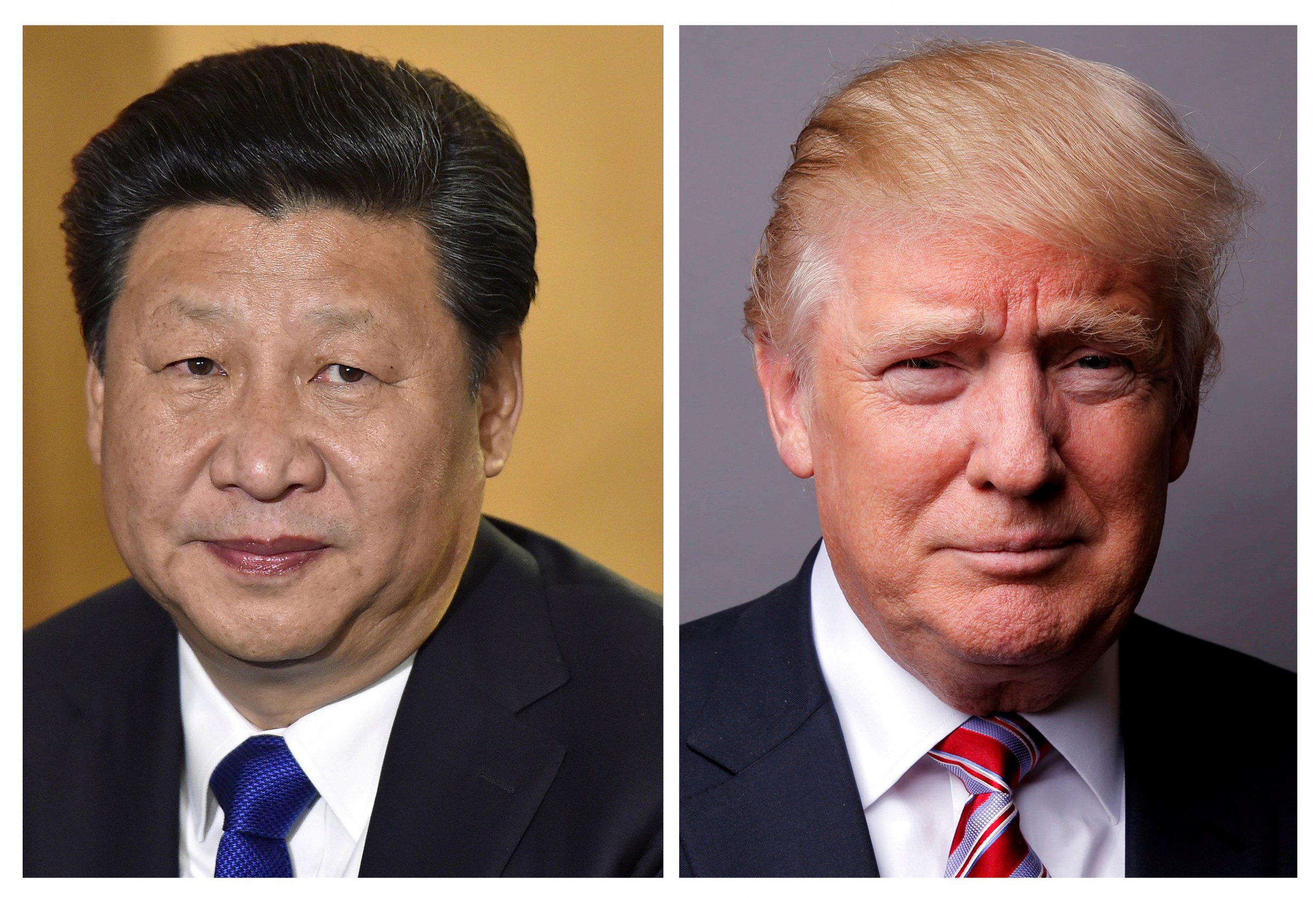
U.S. President Donald Trump changed tack and agreed to honor the "one China" policy during a phone call with China's leader, a major diplomatic boost for Beijing which brooks no criticism of its claim to neighboring Taiwan.
Trump angered Beijing in December by talking to the president of self-ruled Taiwan and saying the United States did not have to stick to the policy. Under the longstanding policy, Washington acknowledges the Chinese position that there is only one China and Taiwan is part of it.
A White House statement said Trump and Chinese President Xi Jinping had a lengthy phone conversation on Thursday night, Washington time. "President Trump agreed, at the request of President Xi, to honor our 'one China' policy," the statement said.
The two leaders had not spoken by telephone since Trump took office on January 20.
Diplomatic sources in Beijing say China had been nervous about Xi being left humiliated in the event a call with Trump went wrong and the details were leaked to the media.
Last week, U.S. ties with staunch ally Australia became strained after The Washington Post published details about an acrimonious phone call between Trump and Prime Minister Malcolm Turnbull.
No issue is more sensitive to Beijing than Taiwan. China and the United States also signaled that with the "one China" issue resolved, they could have more normal relations.
"Representatives of the United States and China will engage in discussions and negotiations on various issues of mutual interest," the statement said.
In a separate statement read out on Chinese state television, Xi said China appreciated Trump's upholding of the "one China" policy.
"I believe that the United States and China are cooperative partners, and through joint efforts we can push bilateral relations to a historic new high," the statement cited Xi as saying.
"The development of China and the United States absolutely can complement each other and advance together. Both sides absolutely can become very good cooperative partners," Xi said.
Lawyer James Zimmerman, the former head of the American Chamber of Commerce in China, said Trump should have never raised the "one China" policy in the first place.
"There is certainly a way of negotiating with the Chinese, but threats concerning fundamental, core interests are counterproductive from the get-go," he said in an email.
"The end result is that Trump just confirmed to the world that he is a paper tiger, a 'zhilaohu' – someone that seems threatening but is wholly ineffectual and unable to stomach a challenge."
Read more: Trump contacts Xi Jinping by letter
The United States switched diplomatic recognition from Taiwan to China in 1979, but is also Taiwan's biggest ally and arms supplier and is bound by legislation to provide the means to help the island defend itself.
China has claimed sovereignty over Taiwan since 1949, when Mao Zedong's Communist forces won the Chinese civil war and Chiang Kai-shek's Nationalists fled to the island. Beijing has vowed to bring Taiwan under its rule, by force if necessary.
China wants cooperation with the United States on trade, investment, technology, energy and infrastructure, as well as strengthening coordination on international matters to jointly protect global peace and stability, Xi said in the statement.
The White House described the call, which came hours before Trump plays host to Japanese Prime Minister Shinzo Abe, as "extremely cordial" with both leaders expressing best wishes to their peoples.
China has repeatedly said it has smooth contacts with the Trump team, led by China's top diplomat, State Councillor Yang Jiechi.
Yang told Michael Flynn, Trump's National Security Advisor, last week that China hopes it can work with the United States to control disputes and sensitive problems.
There was little or no mention in either the Chinese or U.S. statement of other contentious issues—trade and the disputed South China Sea—and neither matter has gone away.
A U.S. official told Reuters on Thursday that a U.S. Navy P-3 plane and a Chinese military aircraft came close to each other over the South China Sea, though the Navy believes the incident was inadvertent.
China on Friday reported an initial trade surplus of $51.35 billion for January, more than $21 billion of which was with the United States.
The state-run Global Times newspaper said China was likely to increase the quota of imported films allowed into the country, a potential fillip for Hollywood producers.
The newspaper, citing experts, predicted around a dozen films could be added to the current quota of 34 imported movies, while foreign producers would get closer to the 40 percent of ticket revenues they receive in other international markets.
Trump broke the ice with Xi earlier in the week in a letter offering belated greetings for last month's Lunar New Year, a move broadly praised by Chinese state media as a positive sign.
In a front page commentary, the overseas edition of China's People's Daily said the letter was an opening to help manage friction. "There's a saying in China—good food is worth waiting for."
Uncommon Knowledge
Newsweek is committed to challenging conventional wisdom and finding connections in the search for common ground.
Newsweek is committed to challenging conventional wisdom and finding connections in the search for common ground.
About the writer
To read how Newsweek uses AI as a newsroom tool, Click here.








